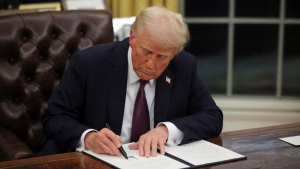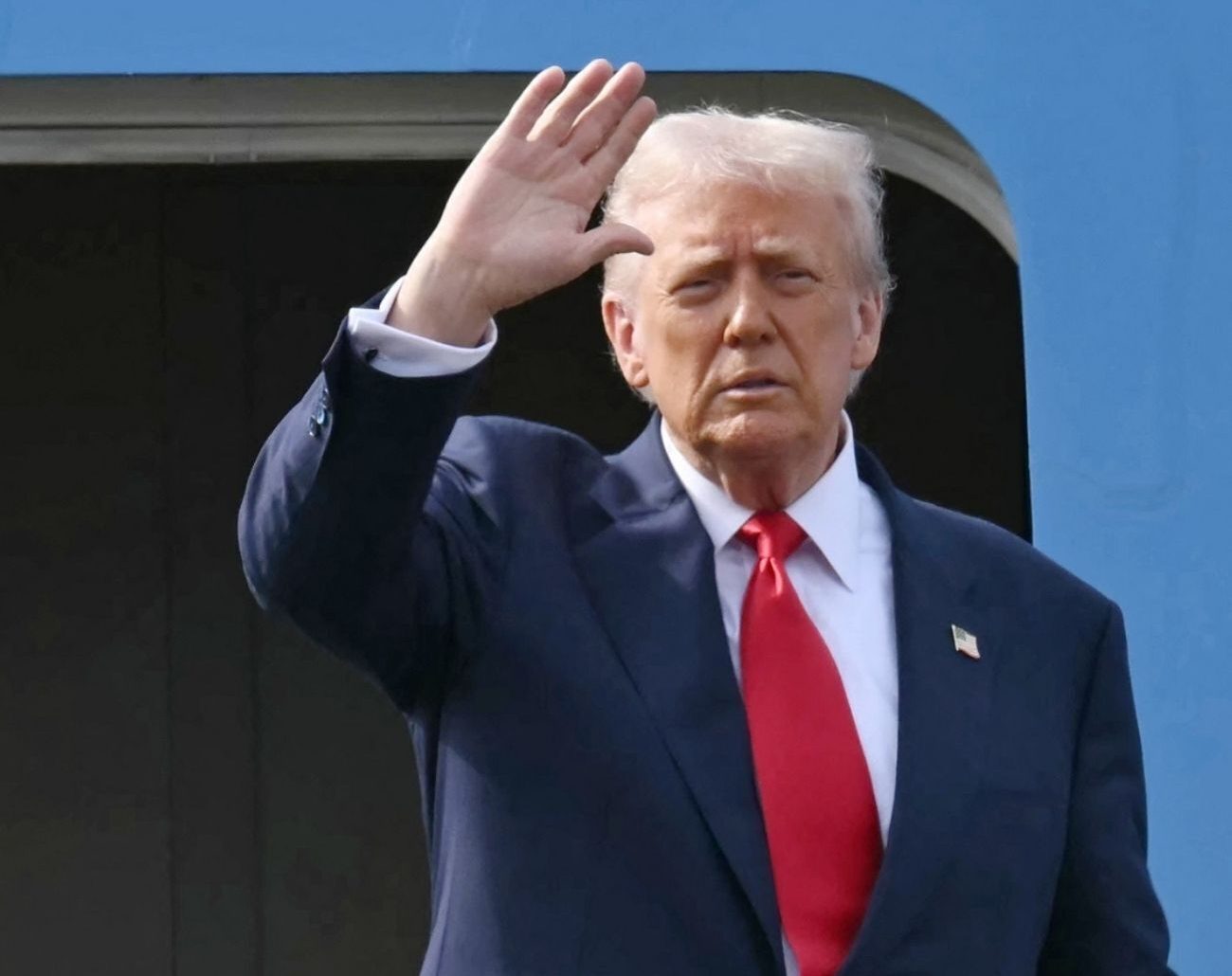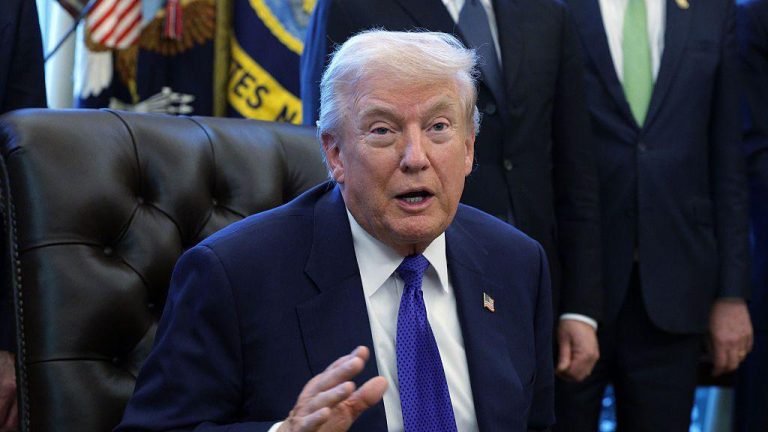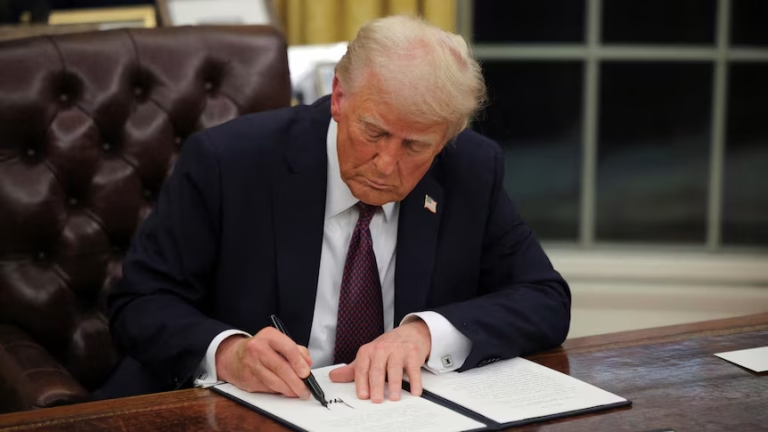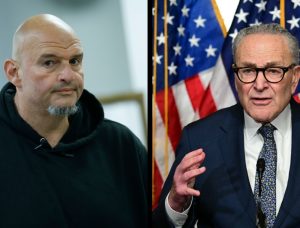WASHINGTON, D.C. — President Donald Trump said Friday that he is prepared to release emergency funds to keep the Supplemental Nutrition Assistance Program (SNAP) running — but only after receiving clear legal direction from federal courts.
The announcement comes as the Schumer-led government shutdown enters its second month, with millions of Americans facing the prospect of losing food assistance as early as this weekend.
“I do NOT want Americans to go hungry just because the Radical Democrats refuse to do the right thing and REOPEN THE GOVERNMENT,” Trump wrote on Truth Social, adding that his team is seeking immediate legal clarification to unlock funding.
Until now, the administration had held off on deploying SNAP’s emergency reserves, citing conflicting legal opinions over whether the funds could be used during an ongoing shutdown. But a pair of court orders issued Friday has complicated — and potentially accelerated — the timeline for federal action.
Conflicting Court Rulings Create Pressure
Earlier Friday, U.S. District Judge John McConnell in Rhode Island ruled that the administration could use the program’s emergency fund — roughly $5.25 billion — to continue SNAP payments through November, even though the fund was originally intended for natural disasters and other crises.
“The USDA is directed to release the emergency funds timely or as soon as possible,” McConnell wrote, requiring a formal status update from the agency by Monday.
Just minutes later, Judge Indira Talwani of Massachusetts issued her own order signaling that she may take similar action, giving the administration until Monday to outline its plan for using contingency funds.
The dueling rulings have added urgency to an already volatile situation. Government lawyers have argued that the law restricts emergency funds to situations when SNAP is already fully funded — a threshold that has not been met due to the prolonged shutdown.
“Our Government lawyers do not think we have the legal authority to pay SNAP with certain monies we have available, and now two Courts have issued conflicting opinions on what we can and cannot do,” Trump posted.
The White House is now seeking further clarification from the courts before acting.
The Numbers Behind the Crisis
According to the U.S. Department of Agriculture (USDA), SNAP serves more than 42 million Americans each month, including low-income families, seniors, and individuals with disabilities.
The program requires approximately $9 billion in monthly funding to operate — meaning that even if the administration releases the $5.25 billion emergency fund, there will still be a significant shortfall.
Officials have hinted that the gap could be filled through Section 32 funds, a separate account derived from customs receipts that can be redirected toward food assistance. However, that decision ultimately rests with the administration’s discretion.
If no solution is reached, benefits set to renew on November 1 could be delayed or reduced, creating widespread food insecurity for millions of households.
Trump: “We Found a Way to Pay the Military — We’ll Find a Way for Families”
President Trump emphasized that his administration has already acted to shield critical federal workers from the effects of the shutdown.
“We already found creative funding solutions to ensure our military continues to receive paychecks,” he said. “We’ll do everything possible to protect American families too — but we have to do it legally.”
While the president’s comments suggest flexibility, he also placed responsibility squarely on Senate Democrats, who have repeatedly blocked the House-passed continuing resolution to reopen the government without additional spending measures.
“The Democrats could end this today,” Trump said. “They’re holding food assistance hostage because they want subsidies and programs that have nothing to do with reopening the government.”
A Shutdown Entering Its Second Month
The shutdown, now stretching past four weeks, is the longest in modern U.S. history. The stalemate began when Democrats refused to approve a budget without an extension of Affordable Care Act (ACA) subsidies, as well as provisions reversing recent cuts to Medicare and Medicaid.
Republicans have insisted on passing a “clean” funding bill — one that would reopen the government first, then revisit policy debates later.
So far, the House-approved continuing resolution has failed 14 times in the Senate, falling short of the 60 votes required for passage. Only a handful of Democrats have crossed party lines to support it.
The impasse has forced roughly 800,000 federal employees to work without pay or face furloughs. And with key welfare programs nearing the brink, bipartisan concern is beginning to mount.
Bipartisan Alarm Over SNAP Funding
Lawmakers on both sides have expressed alarm over the possibility that SNAP benefits could lapse, even temporarily.
Several Democratic senators, including John Fetterman (D-Pa.), have already voiced frustration at their own party’s inaction.
“All I can say is I’m sorry,” Fetterman said earlier this week. “It’s an absolute failure — what occurred here for the last month.”
Republican leaders, meanwhile, argue that Schumer’s strategy is backfiring politically.
“We’ve voted 14 times to reopen the government,” said one senior GOP aide. “Senate Democrats could end this crisis before the weekend if they stopped holding the budget hostage for Obamacare subsidies.”
Public polling in recent days suggests that the blame for the shutdown is beginning to shift toward Democratic leadership, a reversal from prior shutdowns.
Legal Path Ahead
The court orders now create a narrow but viable pathway for the administration to resume SNAP payments — albeit temporarily.
The USDA has until Monday to report back to the courts with its funding plan. Depending on the legal outcome, benefits could be restored within days, though officials caution that some processing delays are inevitable.
“Even if we access emergency funds, SNAP benefits will face delays in November,” Trump acknowledged. “We’re working around the clock to minimize that.”
Administration lawyers are expected to argue that any movement of funds must comply with federal appropriations law — an issue complicated by overlapping statutory limits and the competing rulings now in effect.
Mounting Political Stakes
For the White House, the SNAP issue represents more than a legal question — it’s a test of leadership amid one of the most politically charged standoffs of Trump’s presidency.
By signaling his willingness to fund the program under judicial direction, Trump may be positioning himself as both pragmatic and legally cautious — a contrast to what the administration has described as Democratic obstructionism in the Senate.
“He’s threading the needle — showing compassion while respecting the law,” said one former administration official. “If the courts tell him he can pay for SNAP, he’ll do it. But he won’t break the law to make Chuck Schumer look good.”
Meanwhile, food banks across the country are bracing for an influx of families if benefits lapse.
The Feeding America network said local pantries have already seen a 30% uptick in demand over the past two weeks.
The Bottom Line
President Trump’s latest statement offers a potential lifeline for SNAP recipients — but also underscores how dependent the federal government has become on judicial intervention during the shutdown.
With court deadlines looming and federal coffers stretched thin, the coming days could determine whether millions of Americans receive their food assistance on time — or if the political gridlock in Washington deepens further.
“We’ll follow the law, and we’ll feed our people,” Trump said. “But Congress has to do its job.”

James Jenkins is a celebrated Pulitzer Prize-winning author whose work has reshaped the way readers think about social justice and human rights in America. Raised in Atlanta, Georgia, James grew up in a community that instilled in him both resilience and a strong sense of responsibility toward others. After studying political science and creative writing at Howard University, he worked as a journalist covering civil rights issues before dedicating himself fully to fiction. His novels are known for their sharp, empathetic portraits of marginalized communities and for weaving personal stories with broader political realities. Jenkins’s breakout novel, Shadows of Freedom, won national acclaim for its unflinching look at systemic inequality, while his more recent works explore themes of identity, resilience, and the fight for dignity in the face of oppression. Beyond his novels, James is an active public speaker, lecturing at universities and participating in nonprofit initiatives that support literacy and community empowerment. He believes that storytelling is a way to preserve history and inspire change. When not writing, James enjoys jazz music, mentoring young writers, and traveling with his family to explore cultures and stories around the world.



